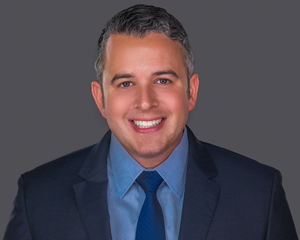Healthcare providers across Florida are entering 2026 with a rapidly changing legal landscape. Regulatory agencies have tightened oversight, enforcement actions are becoming more aggressive, and new technologies like telemedicine and AI are introducing both opportunities and risks. Physicians, medical groups, and healthcare businesses must adapt quickly to these developments or risk costly investigations, compliance failures, and threats to their licensure.
Why Legal Counsel Is Critical
Healthcare law is among the most challenging and tightly regulated areas of practice. Attorneys who dedicate their careers to this field bring a deep understanding of compliance, reimbursement issues, licensing requirements, and practice structuring.As healthcare law attorney David Di Pietro explains,
“Healthcare providers don’t want to be in the position of teaching their lawyer what a CPT code is. You want an attorney who speaks your language and can protect your career from day one.”
Stricter Telehealth Compliance
The pandemic rapidly expanded the use of telemedicine, but regulatory scrutiny has since intensified. Physicians providing care across state lines are now required to obtain the appropriate telemedicine licenses, and the prescribing of controlled substances via virtual visits faces heightened restrictions. Oversight from federal agencies such as the DEA and CMS along with state authorities like the Florida Department of Health has significantly increased, making telehealth compliance more critical than ever.
High-Risk Specialties Under Scrutiny
Some areas of medicine face a heightened risk of regulatory investigations. Pain management practices, due to their prescribing patterns, are among the most frequently audited. In addition, Florida has implemented stricter requirements for office-based surgery centers particularly those performing plastic surgery following a wave of enforcement actions and growing patient safety concerns.
Audits and Investigations on the Rise
Medicare, Medicaid, and private insurers have increased the frequency of audits and overpayment recovery efforts. Often, these reviews are conducted years after initial reimbursement, leaving practices vulnerable to unexpected and substantial financial liabilities. At the same time, the Florida Department of Health has intensified its disciplinary investigations, placing physicians’ licenses and professional standing at greater risk.
Non-Compete Agreements in Medicine
Another trend affecting healthcare professionals is the enforcement of restrictive non-compete agreements. These contracts can significantly limit career mobility, especially in densely populated regions such as South Florida. Physicians are encouraged to seek legal counsel before signing employment agreements to avoid future conflicts.
